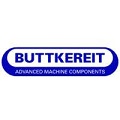
Posted to News on 29th Jul 2007, 19:38
Ceramic linear bearings offer exceptional reliability
After more than 20 years of research and testing, PM Bearings has proved that ceramic linear bearings maintain longer and more reliable performance. Now available from Micromech, the exclusive UK agent, these bearings are non-magnetic, have reduced friction, retain their stiffness and operate at higher temperatures. On top of that, they have an exceptional life span but require little or no lubrication.
For many years ceramic bearings have been well accepted in demanding ball bearing applications, being superior to steel for density and hardness. Because of the non-magnetic properties, this is an excellent material for use in non-magnetic or ultra-high-vacuum environments. But now PM Bearings is said to be the first linear bearing company in the world to realise the practical application of ceramic linear bearings in high-precision positioning stages for operating under extreme environments.
The bearings are very lightweight, as the ceramics density is about 40-60 per cent percent of traditional bearing steel DIN 1.3505. Because force is directly proportional to mass, the low-density silicon nitride used significantly reduces the starting force required to move the slide/stage. This enhances operation in high-dynamic applications where the reduction of the mass-moment of inertia is an ongoing issue.
High rigidity is achieved because ceramic ways and balls (silicon nitride and alumina) have a Young's modulus that is about 50 per cent higher than steel, making them an excellent linear bearing material. These are the qualities needed for use in high-speed XY-stages as for wirebonding machines in the semiconductor industry where rigidity and precision at high speed is required.
Up to seven times longer life than steel bearings
The lifespan of linear bearings is directly related to hardness, the most critical mechanical property of a bearing material. With an impressive Rockwell C 78 hardness, this is twice as hard as many bearing steels. They also have a high compressive strength, about five to seven times that of steel, hence silicon nitride improves wear resistance, minimising the damaging effects of repeated surface contacts.
In addition, the mechanical properties of ceramic bearings do not change in extremely low (cryogenic) or extremely high temperatures. A major problem caused by such high temperatures is lubrication, as oil and grease can normally be used in temperatures of up to 300degC. When temperatures are higher, only solid lubricants can be used but, even then, they can only be used for temperatures up to 500degC. However, ceramic bearings can operate at temperatures up to 800degC, exceeding the best high-temperature bearing steels by a factor of three.
Other characteristics such as vacuum compatibility show the ceramic bearings exhibit less particle generation - about one-third in both air and vacuum compared with stainless steel. Chemically inert, corrosion resistant and electrical non-conductive properties can also enhance linear bearing performance in special applications.
As ceramics are extremely hard and have outstanding wear resistance they outperform most other materials in bearing life, and without lubrication. In rigorous comparison tests it was shown that the rollers in the steel linear bearings exhibited flaking and a loss pre-load was observed after only 40 per cent of the calculated life, while the ceramic linear bearings were still operating after twice the lifespan of steel. Inspection of the rails and rolling elements revealed no wear and the accuracy of travel was still the same. The test confirmed that the life without lubrication is dramatically longer for ceramic linear bearings than for steel.
Static and dynamic load ratings
Currently there are no standards published by ISO or JIS regarding the static and dynamic load ratings of ceramic linear bearings, but PM engineers are studying the static load ratings of ceramic bearings in which Si3n4 rolling elements are used. Based on material testing they are working on the assumption that the load ratings of ceramic beings will have the same values as for the conventional steel ones based on the fracture load of silicon nitride rolling elements. Test results have proved that ceramic linear bearings often achieve longer life that can be three to five times greater, depending on the operating conditions.
The benefits of being non-magnetic, having reduced weight, reduced wear giving longer life, being corrosion resistant and lower thermal expansion have opened up many applications for these bearings. They are presenting many exciting opportunities for designers of spectroscopy, lithography, wirebonding and x-ray machines to take their equipment to higher levels of performance and, due to their relative magnetic permeability at
Ceramic linear bearings and slides are manufactured on a made-to-order basis. In this way the ceramic bearing specifications can be matched with the customer's system to meet their exacting requirements of speed, operating temperature and accuracy.






























